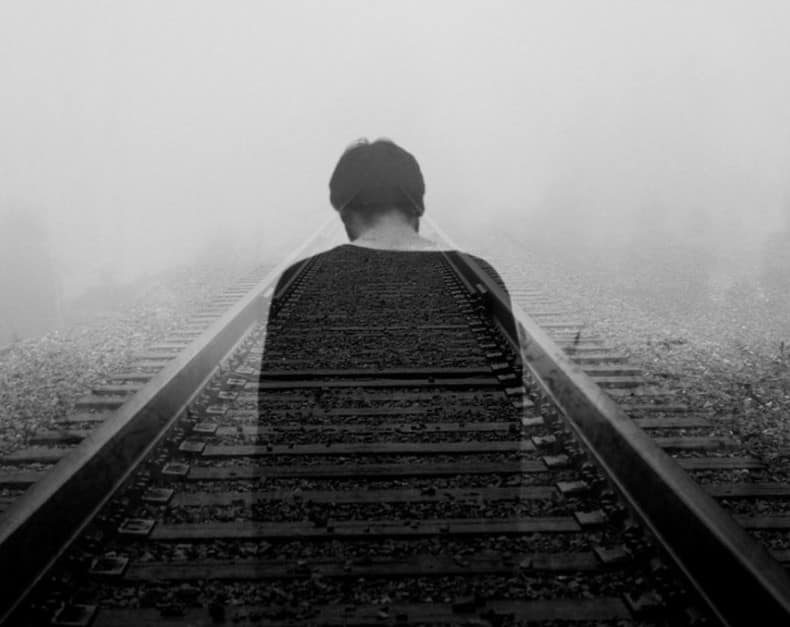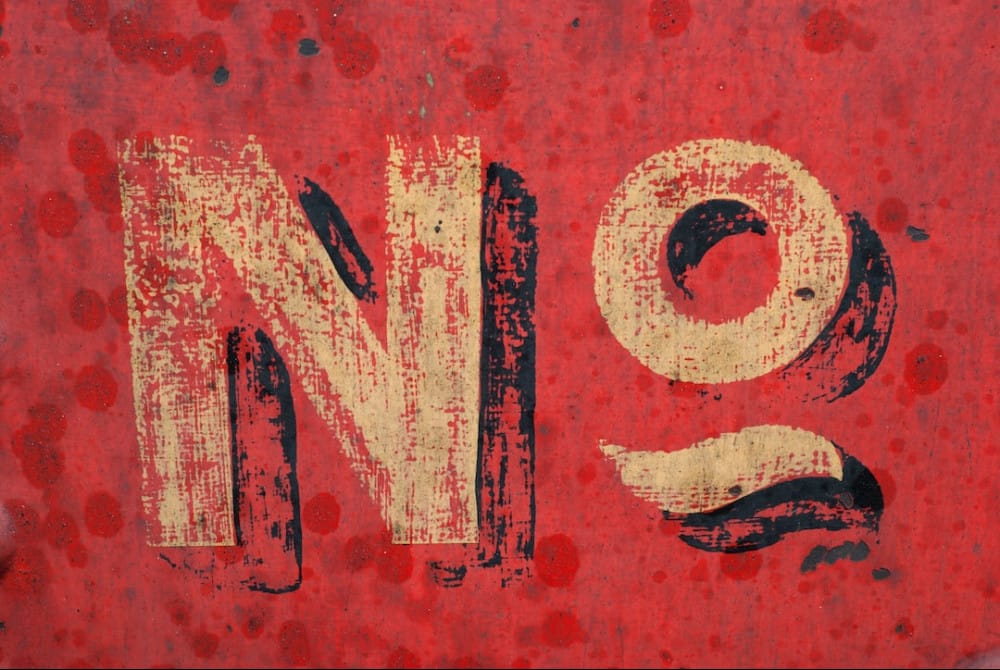
I have been stalling on this article about surviving holidays with grief, even though at this time of writing it, the holidays are bearing down on us. I’ve been stalling on it because I don’t like the holidays. And why? BECAUSE OF GRIEF. My mother died in 2013, my husband in 2016, my grandmother in 2021. Even after all this time, I still don’t like the holidays. The second the world really begins to pick up the momentum (which will be happening in around two weeks or so – today, as I’m writing, it is the beginning of November), especially for Christmas, I can feel myself begin the descent into that part of my heart and soul that has still not yet healed. And the knowledge that it may not heal.
It was my husband, Charlie, whose death really cemented the holiday grief for me. Actually, it was even before he died, leading up to his death, when we had to spend holidays in the hospital or at home during the holidays recovering from being in the hospital. Charlie’s last Christmas was spent in the hospital, recovering from a massive surgery where they had to do a total laryngectomy and glossectomy (this is the removal of the voicebox and tongue). After nearly a year of struggling to recover from such an awful surgery and the cancer only spreading some more, he died on November 11.
So, for many years, holidays have not held many good feelings for me and my kids, who were ages 5-9, at the time. No, the holidays have held absolute horrors. I get to this time of year and all I feel is the emotional pain that got wired into me during all of that. And at the same time, I had to watch everyone else around me experience their normal, happy family lives while knowing I would never have that with Charlie which made me want to curl up and die (and sometimes, still does). So, I put off writing this article for awhile.
But because this is a grief site and I obviously continue to suffer from grief, I definitely want to address the holidays because as a griever, they often suck big time. The organizers in grief support groups that I belonged to always formed special meetings or memorial/remembrance events or activities for people during these times because of how hard it is. Everyone I knew in support groups hated holidays after loss. If you are also grieving, there’s probably a pretty good chance are that you do, too.
Feelings/Emotions You May Be Having
The first thing you want to do is just go ahead and feel what it is you’re feeling, no matter what it is. Stuffing it away won’t usually help for very long and it also probably won’t even work. I know because that’s what I try to do all the time (not always on purpose, it’s just a default response) and I tend to have explosive moments where I’ll just suddenly dissolve into tears over something small. Well, it’ll appear small, but it was just what happened after a slow build up of being bothered by other things until that so called small thing became the straw that broke the camel’s back kind of thing.
Just know that whatever you’re feeling is totally okay and it’s completely normal. Your life got drastically turned upside down and altered in a way that requires a complete overhaul of your system. So, if anyone says you shouldn’t be feeling certain ways or tries to guilt you into feeling happier because it’s Christmas or whatever holiday it is and everyone is supposed to be happy, they’re wrong. Perhaps they mean well, but they’re still wrong. Grieving is an individual journey and there is no specific way you’re supposed to be doing it.
But here’s some of the things you may be feeling during the holidays, especially if you’re at an family gathering/event or even just thinking about going to one:
- Anguish
- Despair
- Anger/Rage/Fury
- Lost
- In a daze or zombified
- Envy/Jealousy
- Depressed
- Guilty
- Regretful
- Overwhelmed
- An uncontrollable urge to flee
- Achingly lonely
- Fearful
- Full of anxiety or panic
- Resentment
- Frustration
- Hurt
You may have other emotions or feelings that are not mentioned here but are still variations of something already listed. Whatever it is, just go ahead and feel it and know that it’s okay to feel what you’re feeling. Others in your life may not understand what you’re experiencing inside, especially if they haven’t had loss. But even if they have, not everyone grieves the same way. I mean, as long as you’re not downright nasty or rude to people (and believe me, sometimes this can be hard not to do when you feel bad), then whatever emotions you have are perfectly fine. Holidays are a difficult time anyway because everyone wants a certain kind of experience but grief can make it a whole lot more difficult.
Finding New Traditions
Some people can carry on with their old traditions despite grief and will even find extra comfort in doing so. It can make them continually feel connected to the person that they lost and therefore, can’t imagine giving them up. If that’s you, that’s fine!
But many other grievers can’t continue with some or even all the things they used to do on the holidays because it reminds them too much of their loss. I am one of these. Whenever Thanksgiving comes around, for example, all I think about is how my husband lost the ability to eat completely after his head and neck cancer treatments, yet continued to make what became his famous stuffing dish, because he knew how much our kids loved it. I also think about how in the last couple of years that he was alive, when he was too sick to do that, he would go online and order ready made Thanksgiving meals for them to have at home because I was always too busy caring for him as well as them daily to do any holiday cooking.
When holiday memories become too triggering, sometimes what helps is finding a new tradition:
- Making a completely different and new dish for holiday meals
- Buying a board game or puzzle that no one has done before to start a new holiday activity
- Make decorations for the next holiday or just for any reason (my church did things like this)
- Gather everyone around to rent and watch a movie together
- If you and your family enjoy music or singing, you could try attending a concert together
- Volunteer at an animal shelter or a soup kitchen
- Donate to others (for example, if you lost someone to cancer, maybe choose charities or organizations that focus on cancer research)
These are just some initial ideas. But ultimately, you just have to try a few different ideas of your own choosing, and see if it works for you. Sometimes, just doing something different like this during holidays can help with the grief that occurs. When you try something new, it’s not stuffed with memories like your old traditions are, so it may allow you to find just a little bit of enjoyment during what can be an extremely difficult time.
Also, new traditions don’t have to be something that is totally and completely different. You can start something that is not only new but also honors them in some way. For example, if your person was really wild about going fishing, you could start a new tradition like including a fish dish at the holiday meal.
Make Memorials
Speaking of honoring, making memorials or remembrances can be a way of making space for your grief at holidays. As I mentioned above, when I was in grief support groups, they always organized these kinds of events to help people get through the holidays. I never attended because there is something about doing memorials that is just too difficult for me. I’m not sure what it is, besides the fact that it’s severely painful, but I still find myself pulling away at doing them.
But you are not me and you may find that this is exactly the kind of thing you need to be doing. And if that’s the case, then you should be doing it. You can do this on your own at home but personally, I would recommend that you find a grief support group or organization that puts together remembrance events so that you can be assured that you’ll be around people who know how to support you through it. It can be difficult to try to do this kind of thing at home either alone or when your family and friends are gathered for what they may expect to be a regular holiday gathering. Of course, this is not true for everyone and if you’d like to arrange with family members or friends beforehand and feel comfortable in doing so, then that’s fine, too.
Some ideas for memorial events or sessions:
- Sharing favorite memories
- Sharing things others might not know about the person who has died (nothing embarrassing or too private, of course but positive things like…maybe some people didn’t know that your person was fluent in another language or once wanted to be an astronomer, etc…)
- Lighting a candle (their favorite scent if they had one, or just choosing a candle in their favorite color)
- Doing a memorial activity
- Bringing their favorite dish to share
- Playing their favorite song or music
Do Something Completely Different & Un-Holiday Like
If I had the money and the time, I would, for sure, disappear completely from everyone and everything for:
- From November 10 until whenever Thanksgiving ended. (This is because my husband died on Nov. 11).
- From about December 15th until January 15th.
- Possibly all of February.
When I look at my above dates, it seems like I would basically like to just disappear from November to March. And when
But since this is not possible for me and probably not you either, the next best thing is if you can, do something that has nothing to do with whatever you traditionally do during your holidays. Instead of turkey on Thanksgiving, go eat tacos or barbecue. Instead of decorating a tree, go visit a local museum or national park. Go see a movie or take a spa day. If you can afford to travel and have the time, go spend the holidays in another state or another country that is totally opposite of what you’re used to (for instance, if you live in Florida, go hang out in Vermont for a few days, see what’s that’s like). There was one year (the year before Covid hit), we got the opportunity to go to Disneyland on Christmas Day. I actually enjoyed Christmas more that year because I wasn’t thinking about all the traditional Christmas stuff and I didn’t have to worry about pretending to enjoy gatherings. And hardly anyone was in the Disneyland park that day so we got to enjoy so much of it because the lines were all short.
Find out what’s going to be open and closed on the holidays near you so you can plan. Or stay home and do something else you’d like to do. By doing some of these untraditional things, you might even accidentally start a new tradition. Maybe you’ll find out you like barbecue on Thanksgiving way better. You never know.
It’s Okay to Say NO
Easier said than done, I know. In fact, as I write this entire article, I feel like I’m possibly giving advice that I may not always be able to follow myself. That’s the reality of grief.
But when holidays come around, a lot of us feel intense pressure from family and friends to attend gatherings and behave in certain ways. Actually, I think people feel that regardless of whether they are grieving or not. But when you are grieving it makes it really hard to say no. Many people may pressure you further with things like this:
- You shouldn’t be alone…
- They wouldn’t have wanted you to be unhappy…
- But everyone will be so disappointed…
- What will everyone think…
- What will I say to everyone if you don’t participate….
- You need to try to smile more, this is the perfect way for you to do that…
I’m telling you, it’s okay to say no, but while I know this, I also know I will give in a whole lot myself because I don’t want to disappoint everyone else who wants the holiday experience. The trouble is that ultimately, I feel like I can’t really win no matter what I choose. I can give in but I cannot pretend to enjoy myself like everyone else. I just can’t. Maybe one day I will but so far, I don’t. And it’s been seven years since I lost my husband.
Still, I try to be present and polite and do everything everyone wants me to participate in. In fact, I am still very grateful and pleased when anyone wants to include me and my kids. I can even get some glimmers of enjoyment from time to time. But often, there is only so much I can handle, no matter how much I make the effort to keep smiling and talking, and people always sense it. Then it either saddens them or makes them mad because I guess they feel like they failed to take my grief away. Sometimes, they accuse me of not being grateful. And me assuring them that it’s not them, it’s me, doesn’t seem to make much difference. That’s been my experience anyway and the experience of a lot of other people I have spoken with who were grieving during the holidays. I guess it’s because our culture tends to shy away from death and grief.
If you do give in, try to step away from time to time, just to get a breather. But it’s also okay to say no and you don’t have to feel guilty because this stuff sucks. There’s nothing wrong with letting others know what you need and what you don’t. Hopefully, you’ll be surrounded by people who are okay with whatever you decide that is.
One Last Thing…
I just wanted to add that you never know how you’re going to be affected by certain things or how grief has changed you until something happens and you realize you either like it or you don’t. And grief can be really weird and have no patterns at times.
For example, I don’t like holidays anymore BUT for some reason, I am okay with Halloween. In fact, Halloween has become
And this is where grief can be weird because sometimes, good memories like that, can trigger us too badly and then, we don’t want to have anything to do with it. I’m surprised that this doesn’t do that to me because there are other good memories that do trigger me that way. But for some reason, the Halloween tradition is one that I take comfort in continuing and makes me feel connected to Charlie.
What is your experience with grief during the holidays? Take a moment to comment below, I’m sure it would help others, and I’d be happy to offer you any words of support.
As always, take care,
Nikki




First of all, so sorry for your losses. Writing about your own grief helps many others going through the same thing. You’re right, the holidays can be a difficult time. It’s a time where we have many of our memories with our loved ones that have passed on. By you never forgetting those memories, it allows your loved ones to continue to live on. They’re watching down over you. Thank you for sharing. I hope you heal.
Thank you for your kindness! Writing about grief can be both difficult and relieving. But I hope, like you said, that it will help many others who may be going through these difficult emotions, especially during the holiday season. It’s usually one of the toughest times of the year to get through for many people. Thank you again!